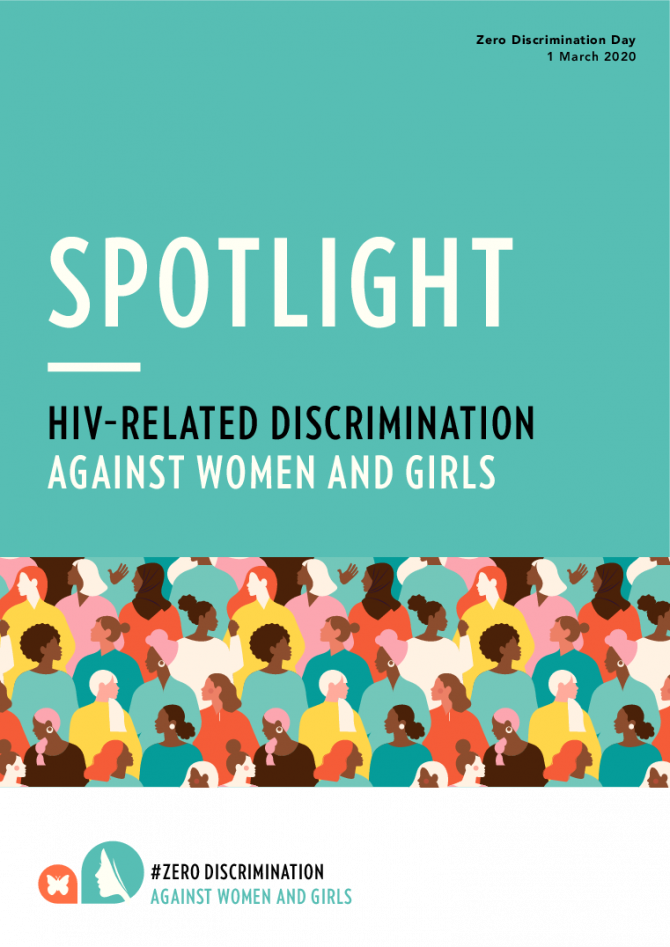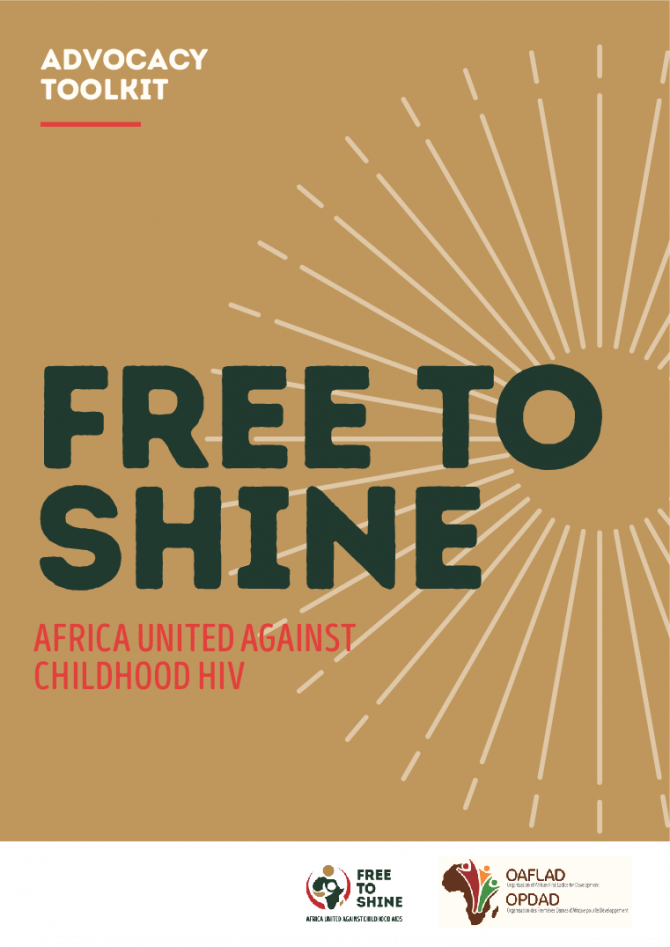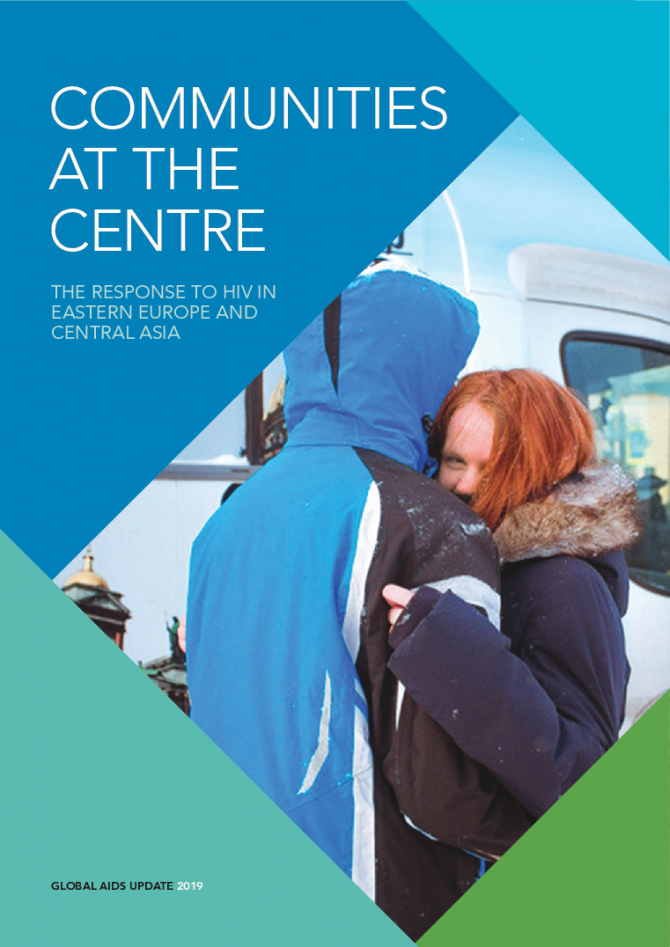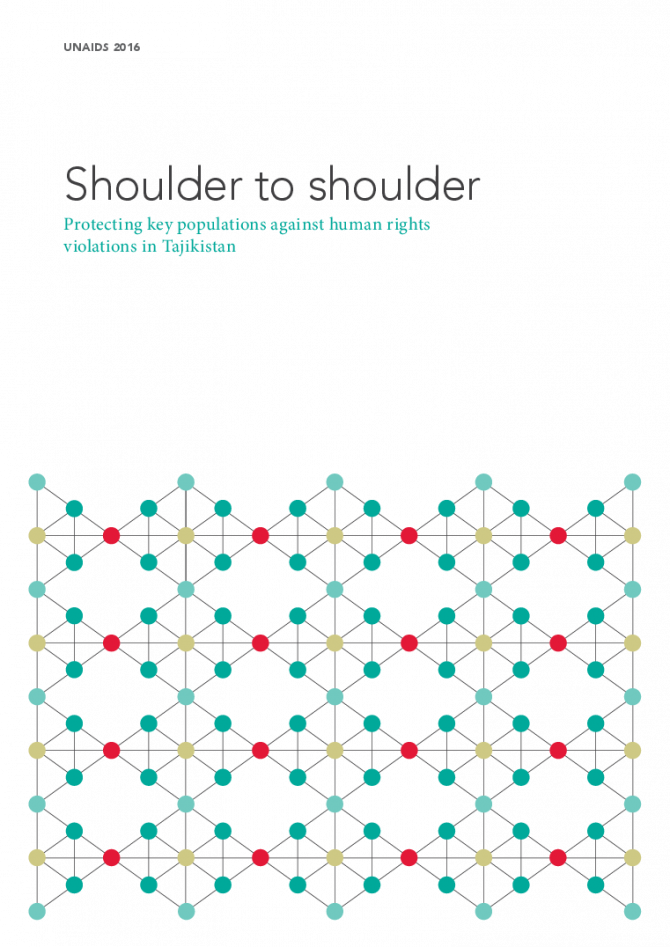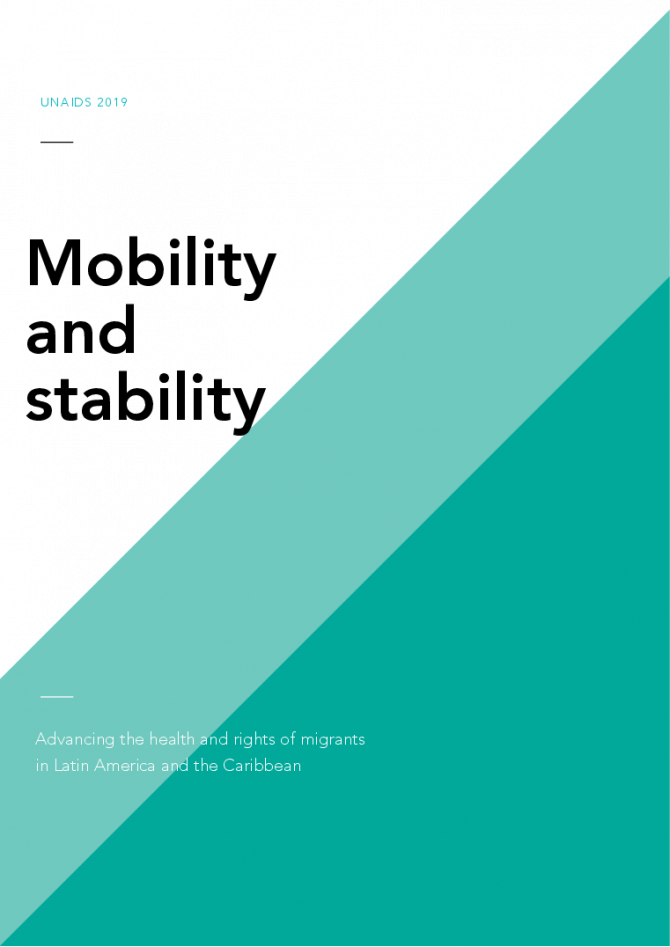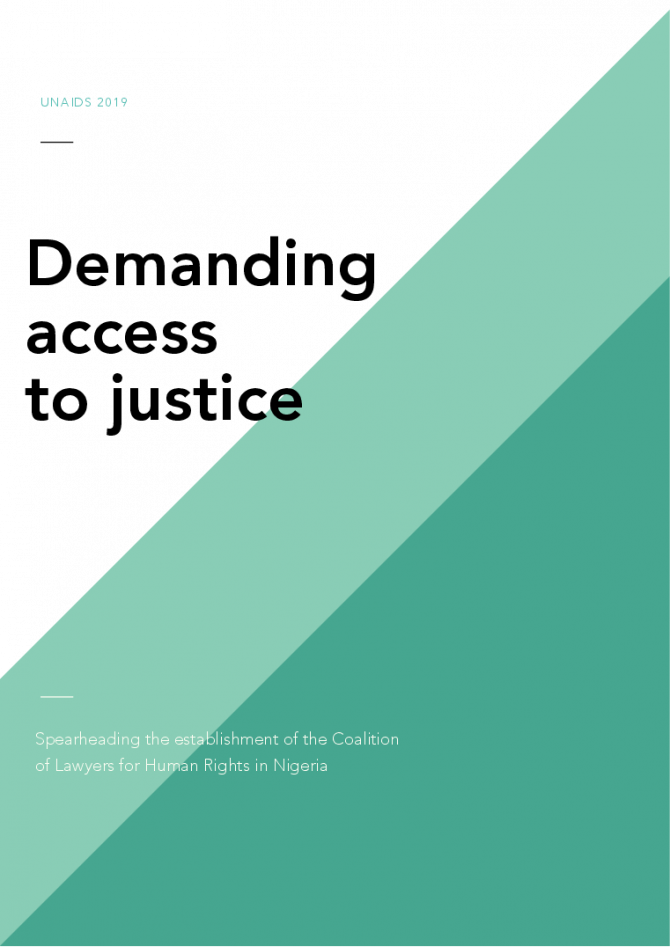Documents
Spotlight — HIV–related discrimination against women and girls — Zero Discrimination Day 1 March 2020
25 February 2020
Across the world, gender inequality, violence, poverty and insecurity continue to stoke excessive HIV risk among women and girls, especially those in marginalized and excluded communities. Learn more about zero discrimination against women and girls.
Documents
Voluntary medical male circumcision — Remarkable progress in the scale-up of voluntary medical male circumcision as an HIV prevention intervention in 15 eastern and southern African countries
21 February 2020
Global data have highlighted the challenges in reaching desirable health outcomes for men in the HIV response. However, the voluntary medical male circumcision programme is a good example of an intervention that has consistently managed to reach men with good-quality HIV services for more than a decade.
Documents
Advocacy toolkit — Africa united against childhood HIV — Free to Shine campaign
10 February 2020
This toolkit proposes three areas for advocacy for first ladies to take the Free to Shine campaign forward, bearing in mind the specific needs of their country:
- ADVOCACY FOCUS 1: Keeping women and girls HIV-free.
- ADVOCACY FOCUS 2: Preventing vertical transmission of HIV.
- ADVOCACY FOCUS 3: Finding missing children and adolescents living with HIV and ensuring that they receive HIV services.
This toolkit shows how to take the advocacy focus areas forward, recalling international and regional commitments relevant to the Free to Shine campaign. This document is also available in Arabic. French and Portuguese.
Documents
The response to HIV in Eastern Europe and Central Asia - Global AIDS update 2019
16 July 2019
The number people newly infected with HIV in eastern Europe and central Asia increased by 29% between 2010 and 2018. Key populations are disproportionately affected, and they lack access to the HIV services they need. Despite expanded HIV testing services, antiretroviral therapy coverage in the region is lower than in most other regions. Large proportions of people diagnosed with HIV are not being linked to HIV treatment and care.
Documents
No more neglect — Female genital schistosomiasis and HIV — Integrating sexual and reproductive health interventions to improve women’s lives
12 December 2019
Neglected tropical diseases continue to affect people who live under dire socioeconomic conditions in the poorest parts of the world — people who the global health and development community have promised not to leave behind. Female genital schistosomiasis (FGS), is a waterborne neglected tropical disease of poverty affecting 56 million African women and girls. Yet FGS remains underreported, under- and misdiagnosed and largely untreated.
Documents
World AIDS Day report launch, Nairobi, Kenya, 26 November 2019
26 November 2019
I am here because Africa is the continent still most affected by the HIV epidemic. More than 25 million people are living with HIV in sub-Saharan Africa—more than two-thirds of the global total of 37.9 million people living with HIV. I am also here because many countries in Africa are leading the way to end AIDS. We are heroes, fighting the epidemic. In Kenya, AIDS-related deaths have fallen by more than 50% since 2010, and new HIV infections are down by 30%. This is a great achievement. Great progress in a short time. Today, I can announce that 24.5 million people living with HIV around the world now have access to life-saving treatment. Great news and great progress.
Documents
Shoulder to shoulder — Protecting key populations against human rights violations in Tajikistan
03 December 2016
In 2014, the UNAIDS Joint Programme played a central role in halting a wave of human rights violations against sex workers in Tajikistan. A renewed crackdown in 2016 means that UNAIDS close collaboration with civil society is more important than ever. Read other documents in the UNAIDS in Focus series
Documents
Mobility and stability — Advancing the health and rights of migrants in Latin America and the Caribbean
03 December 2019
Since 2014, the Bolivarian Republic of Venezuela has been the source of a major migratory movement that has spread across Latin America and the Caribbean. Migrants face intersecting vulnerabilities to HIV and barriers to accessing health care that require interagency, cross-border responses. governments, civil society organizations and communities, supported by the UN Joint Programme on HIV/AIDS (UNAIDS) and other United Nations agencies, are working within the country and across the region to address these vulnerabilities, realize migrants’ right to health and end the AIDS epidemic. Read other documents in the UNAIDS in Focus series
Documents
Demanding access to justice — Spearheading the establishment of the Coalition of Lawyers for Human Rights in Nigeria
03 December 2019
Punitive legal environments—coupled with stigma and discrimination and violence—continue to undermine efforts to end the aids epidemic. In Nigeria, UNAIDS mobilized lawyers, civil society organizations and people living with and at risk of HIV in order to form the Coalition of Lawyers for Human Rights. This coalition provides legal advice and representation to lesbian, gay, bisexual, transgender and intersex people, people living with hiv, sex workers and people who inject drugs. Read other documents in the UNAIDS in Focus series

